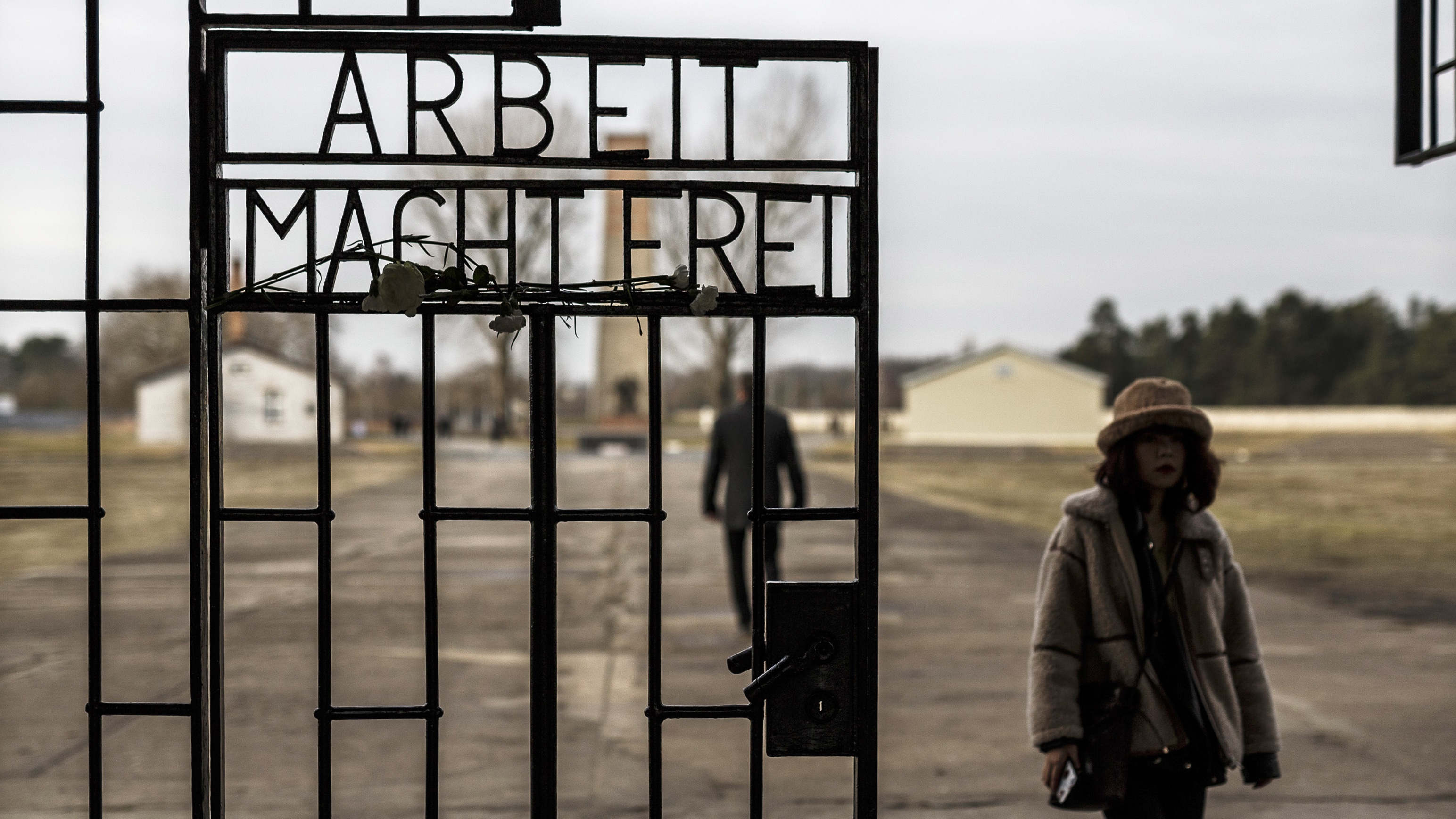Nazi trial: 100-year-old former concentration camp guard to face trial in Germany
Centenarian up in court on ‘thousands of counts of being an accessory to murder’

A free daily email with the biggest news stories of the day – and the best features from TheWeek.com
You are now subscribed
Your newsletter sign-up was successful
A 100-year-old former guard at the Sachsenhausen Nazi concentration camp near Berlin is to face trial 76 years after the end of the Second World War.
The accused, who has not been named in accordance with German law surrounding the naming of suspects, will be tried in the district court of Neuruppin on a charge of accessory to murder in 3,500 cases, German weekly newspaper Welt am Sonntag reports.
The man “worked as a camp guard from 1942 to 1945 in Sachsenhausen”, Reuters adds, where around 200,000 people were imprisoned and 20,000 murdered under the Nazi regime. The camp held 11,000 Jewish prisoners in 1945. Despite the man’s age, a court spokesperson said that a trial was being arranged as the defendant should be able to appear in court for two to two-and-a-half hours a day.
The Week
Escape your echo chamber. Get the facts behind the news, plus analysis from multiple perspectives.

Sign up for The Week's Free Newsletters
From our morning news briefing to a weekly Good News Newsletter, get the best of The Week delivered directly to your inbox.
From our morning news briefing to a weekly Good News Newsletter, get the best of The Week delivered directly to your inbox.
The decision to prosecute a centenarian “reflects how law enforcement officials are racing against time to bring some closure for elderly Holocaust survivors and their families”, The Washington Post says, especially “as more and more Nazi personnel and their victims die in old age”.
The likelihood of individuals reaching trial was also enhanced by a “landmark court ruling” in 2011 that overturned a previous need for prosecutors “to prove defendants had committed specific acts, against specific victims, to convict them of WWII-era war crimes”, the paper adds.
This threshold was “near-impossible to meet due to the general anonymity of camp guards”. However, in 2011 a Berlin court found American-Ukrainian John Demjanjuk guilty of being an accessory to 28,000 murders due to his work as a guard at Sobibor concentration camp in occupied Poland.
Demjanjuk was sentenced to five years in jail for his crimes, a verdict which “paved the way for convictions that largely rested on whether the defendant had served at a Nazi death camp”, the paper adds.
A free daily email with the biggest news stories of the day – and the best features from TheWeek.com
“While the number of suspects in Nazi crimes is dwindling prosecutors are still trying to bring individuals to justice”, France 24 says, with the 2011 trial opening up the opportunity to pursue “grounds for culpability with no proof of a specific crime”.
The 100-year-old man will join “scores of elderly suspects recently brought to trial for having allegedly worked for the Nazi regime at concentration camps”, The Washington Post adds.
Between 2001 and 2018, at least 105 individuals were convicted, deported, denaturalised, or extradited from North America and Europe for allegedly participating in war crimes, according to the Simon Wiesenthal Center, a Los Angeles-based Jewish human rights group.
Later this year, 96-year-old Irmgard Furchner will stand trial relating to her work as a “stenographer and secretary” at the Stutthof concentration camp beginning when she was 18 years old, Der Spiegel reports. The trial will seek to answer the question of “how much did a woman who never entered the camp see behind her desk about the killing?”.
Her role included the passing on of orders by “letters, telex or radio messages” detailing “execution orders” and “deportation lists for the trains to Auschwitz”, as well as “instructions on mass killings using poison gas”, the magazine adds.
-
 Why are election experts taking Trump’s midterm threats seriously?
Why are election experts taking Trump’s midterm threats seriously?IN THE SPOTLIGHT As the president muses about polling place deployments and a centralized electoral system aimed at one-party control, lawmakers are taking this administration at its word
-
 ‘Restaurateurs have become millionaires’
‘Restaurateurs have become millionaires’Instant Opinion Opinion, comment and editorials of the day
-
 Earth is rapidly approaching a ‘hothouse’ trajectory of warming
Earth is rapidly approaching a ‘hothouse’ trajectory of warmingThe explainer It may become impossible to fix
-
 Epstein files topple law CEO, roil UK government
Epstein files topple law CEO, roil UK governmentSpeed Read Peter Mandelson, Britain’s former ambassador to the US, is caught up in the scandal
-
 Iran and US prepare to meet after skirmishes
Iran and US prepare to meet after skirmishesSpeed Read The incident comes amid heightened tensions in the Middle East
-
 Israel retrieves final hostage’s body from Gaza
Israel retrieves final hostage’s body from GazaSpeed Read The 24-year-old police officer was killed during the initial Hamas attack
-
 China’s Xi targets top general in growing purge
China’s Xi targets top general in growing purgeSpeed Read Zhang Youxia is being investigated over ‘grave violations’ of the law
-
 Panama and Canada are negotiating over a crucial copper mine
Panama and Canada are negotiating over a crucial copper mineIn the Spotlight Panama is set to make a final decision on the mine this summer
-
 Why Greenland’s natural resources are nearly impossible to mine
Why Greenland’s natural resources are nearly impossible to mineThe Explainer The country’s natural landscape makes the task extremely difficult
-
 Iran cuts internet as protests escalate
Iran cuts internet as protests escalateSpeed Reada Government buildings across the country have been set on fire
-
 US nabs ‘shadow’ tanker claimed by Russia
US nabs ‘shadow’ tanker claimed by RussiaSpeed Read The ship was one of two vessels seized by the US military